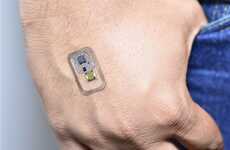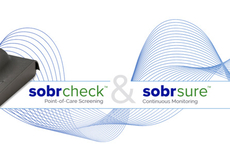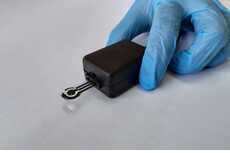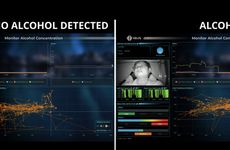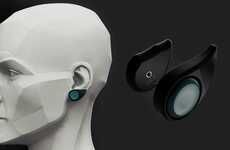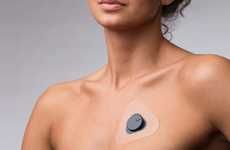
This Alcohol Biosensor Chip Can Be Injected Into the Skin
Justin Lam — April 18, 2018 — Lifestyle
References: forbes & digitaltrends
Unlike wearable alcohol monitors, the latest alcohol biosensor chip developed by researchers at the University of California San Diego is meant to be directly injected into the body. Designed for long-term monitoring, this chip measures just one cubic millimeter in size and can easily be injected under the skin with interstitial fluid—the fluid that surrounds the body's cells. Once inside, the sensor can transmit data to an associated device, with communication being handled by radio signals.
To read a person's blood alcohol content, the alcohol biosensor chip employs three different sensors. The first is coated in alcohol oxidase, which reacts with alcohol to create an electrochemically detectable byproduct. The second sensor measures background signals, while the third detects pH levels. The final two levels of the biosensor chip do not measure alcohol but instead make the initial reading more accurate.
Image Credit: University of California San Diego
To read a person's blood alcohol content, the alcohol biosensor chip employs three different sensors. The first is coated in alcohol oxidase, which reacts with alcohol to create an electrochemically detectable byproduct. The second sensor measures background signals, while the third detects pH levels. The final two levels of the biosensor chip do not measure alcohol but instead make the initial reading more accurate.
Image Credit: University of California San Diego
Trend Themes
1. Implantable Biosensors - There is demand for implantable biosensors for long-term monitoring of various health markers in the body.
2. Real-time Health Monitoring - There is opportunity for real-time monitoring of various health markers using implanted biosensors.
3. Wireless Communication with Implantable Sensors - There is a need for wireless communication technology to allow data transmission between implanted biosensors and external devices or systems.
Industry Implications
1. Healthcare - Implantable biosensors can revolutionize the healthcare industry by enabling real-time monitoring of health markers in patients.
2. Alcohol Monitoring - The alcohol biosensor chip can disrupt the alcohol monitoring industry by providing a more accurate and less invasive method of monitoring blood alcohol levels.
3. Sport and Fitness - Implantable biosensors can be utilized in the sport and fitness industry to monitor athletes' health markers in real-time during training and competition.
1.3
Score
Popularity
Activity
Freshness


